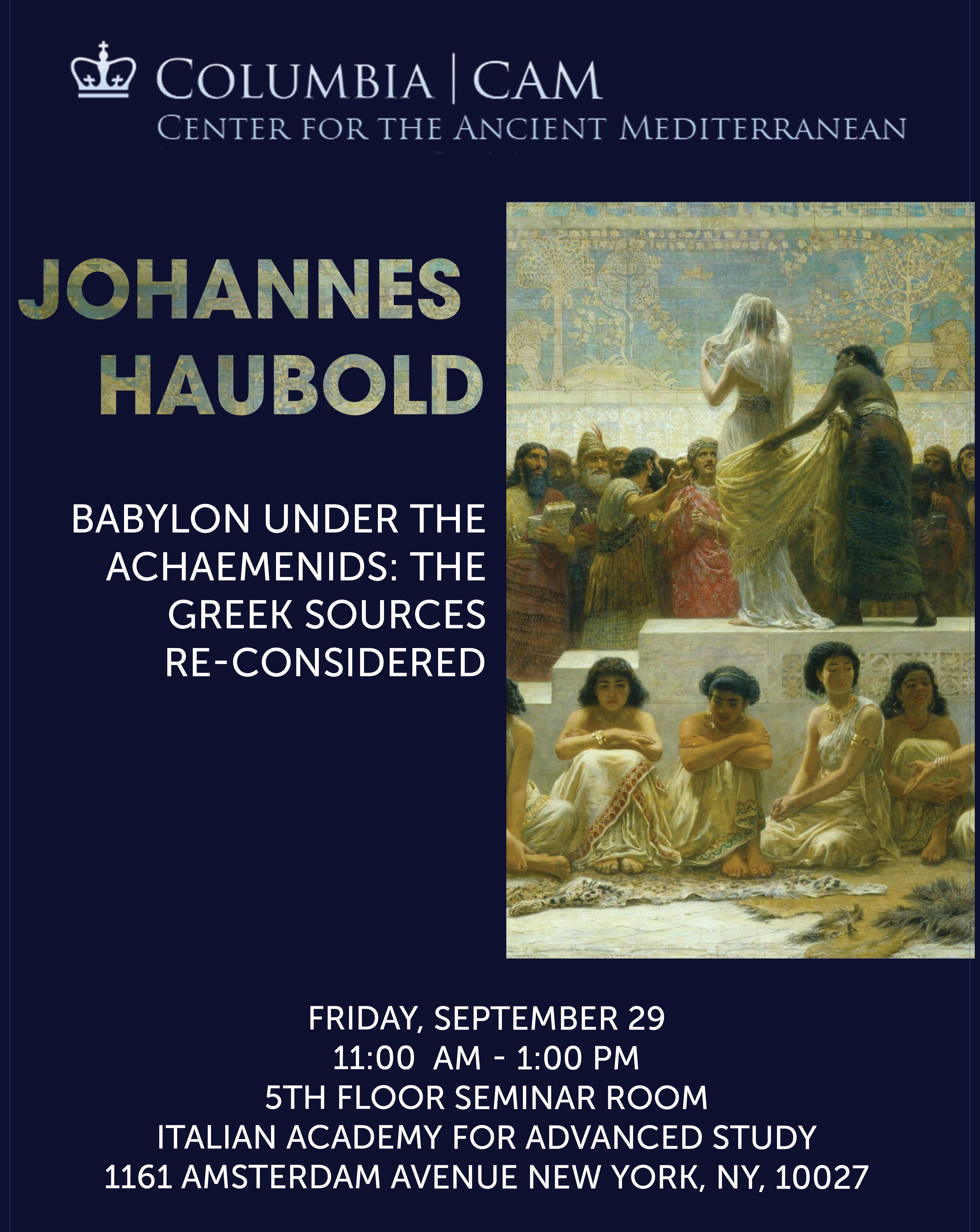
11:00 am – 1:00 pm
5th Floor Seminar Room, Italian Academy for Advanced Study, 1161 Amsterdam Avenue, New York, NY, 10027
Johannes Haubold
“Babylon under the Achaemenids: the Greek sources re-considered”
Recent scholarship has made a habit of pointing out the inaccuracy of Greek sources about Babylon: pace Herodotus, the Babylonians did not auction their daughters on the marriage market; pace Ctesias, Queen Semiramis is largely a figment of the imagination; and unbeknownst, it would seem, to both Herodotus and Ctesias, the Neo-Babylonian empire really did exist, controlling large swathes of the fertile crescent and the Arab peninsula in the 6th century BCE. All this we know because cuneiform sources are now well understood: by studying them, we can hope to cut through the fog of Greek mythmaking and get to the facts of the matter – or sogoes the dominant account.
This paper takes a different approach. Rather than play off cuneiform reality against Greek fantasy, I ask how the two sets of sources can be used to complement and mutually illuminate each other. I make two suggestions in particular. First, Greek historians of the Achaemenid period attest to a remodeling of collective memory which occurred in the wake of major uprisings in Babylonia in the early 5th century BCE. The reprisals that ensued, including what has become known as the ‘end of archives’ (Waerzeggers), challenged established patterns of historical memory, and it is this challenge, I argue, that informs Greek mythmaking about Babylon. My second point follows from the first: as part of their attempt to disrupt home-grown imperial tradition, thinkers friendly to the Achaemenid project promoted a view of the Babylonian elites as either ineffective or effective only at enabling their Iranian overlords. The former tendency is prominent in Herodotus. The latter comes to the fore in Ctesias’ account of the fall of Nineveh. Ctesias there transforms the Neo-Babylonian king Nabopolassar, who in his inscriptions boasts that he single-handedly threw off the Assyrian yoke, into the arch-collaborator Belesys, who with his Chaldean expertise enables a Median king to conquer Assyria, while holding no imperial aspirations of his own.
I conclude by reflecting on the manipulation of political and cultural memory in the Achaemenid empire; and on the insight that the Greek sources, with their story-telling approach, show some of the ways in which the Achaemenids and their allies exerted imperial control.

